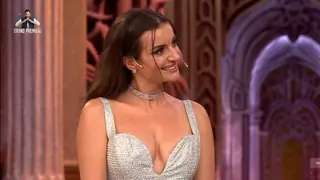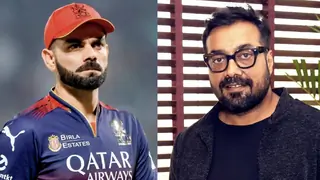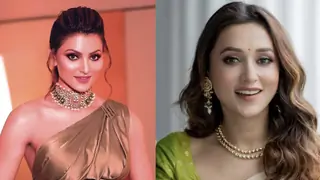Earlier, appraisals of singers/performers were confined to reviews in newspapers/magazines. With the coming of reality shows, the review is being done in the public domain, face-to-face. We don't know if this is right or wrong. "American Idol" introduced the concept of ruthless criticism which was enjoyed by viewers, whether or not the ones being subjected to it liked it.
Singers taking part in shows like these need to be prepared for the new realities. Until now, the Magical Mentors/Groovy Gurus were doing all the criticism while the guest judges were being effusive in praise. The guests made sure that each contestant was praised equally and ducked questions about who was best. Some broke into a dance while watching, some called singers "amazing, fantastic, rocking" and so on. It was getting quite predictable.
Not to forget that guest judges came to the programme to promote some movie of theirs and wanted to gain brownie points with the audience by being sweet and encouraging.
Paresh Rawal, however came with his own brand of candour. If he wasn't impressed, he wasn't and he didn't want to sugar-coat it. He didn't even talk about his new movie till he was asked about it, and then he just devoted a few sentences to it. I don't even remember him asking the public to watch it. As for the Rajeev-Vishwas spat, he rightly told them that one shouldn't get embroiled in minor skirmishes. Life has much bigger issues in store.
Comparing Shaan and a guest judge is like comparing apples and oranges. A host/anchor is not a judge. In fact, he acts like a buffer between the audience, judges and contestants. So Shaan always encouraged contestants.
If public criticism by judges at a show like this is not acceptable, then music reviews in newspapers/websites/magazines should also not be acceptable since these can also discourage artists, isn't it? Shouldn't these reviews be sent confidentially to artists after every programme in order not to humiliate them?
I believe the obligation of the music critique is primarily to their audiences/ readership, not to the artistes. In fact, they might have an adversarial relationship with the artistes. recall cases where artistes try to suppress certain critical pieces?
As for judges on musical shows, who do they have an obligation to? If we are saying that their criticism could be valuable to the contestants, then it seems we are suggesting that a large part of their obligation is to the contestants. as folks with some moral or humane obligation to the contestants, shldnt they then handle things differently than the professional critique?
vastly different cases, no?


























